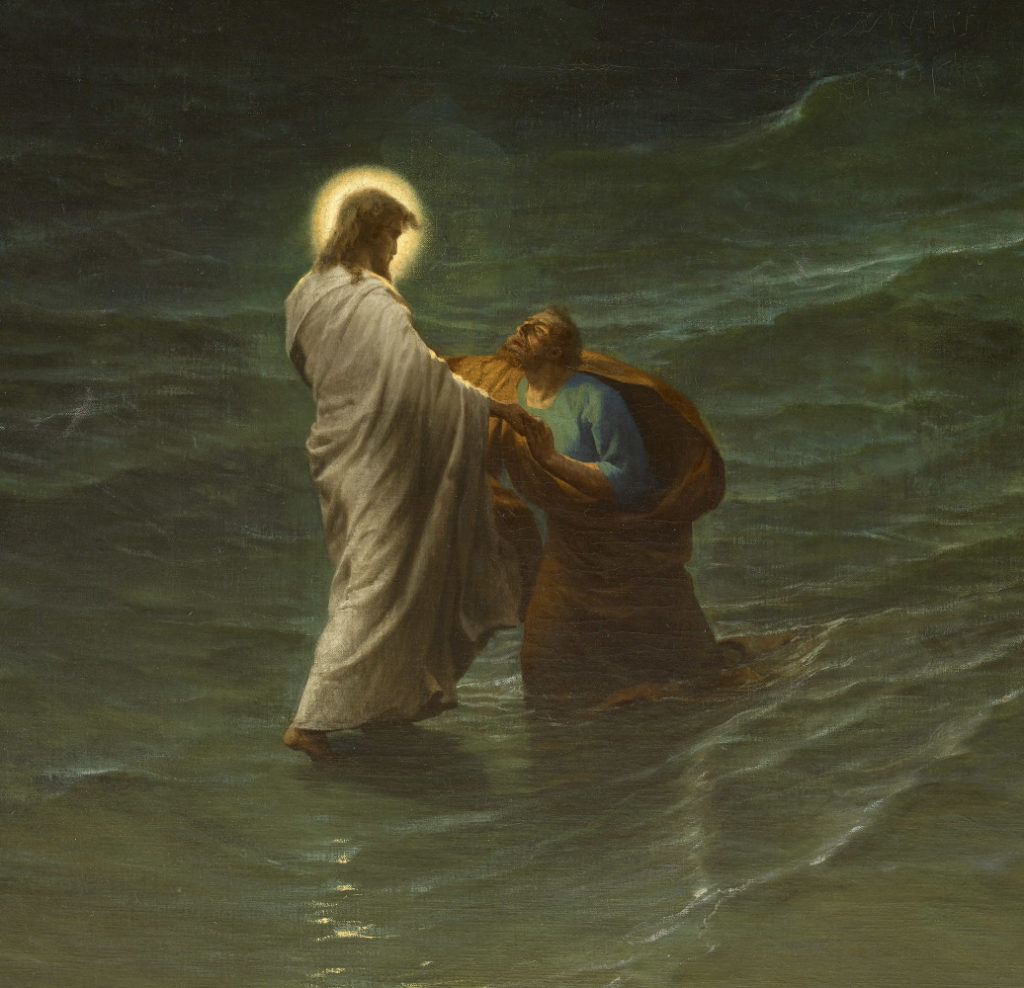Spiritual Sunday
Today’s Lenten poem is Oscar Wilde’s “E Tenebris,” Latin for “out of darkness.” Addressing Christ, the speaker feels that he is drowning in a stormier sea “than Simon on thy lake of Galilee” and that his heart “is as some famine-murdered land,/Whence all good things have perished utterly.” (Coleridge’s Ancient Mariner talks of being unable to pray because his heart is “as dry as dust.”) Were he to call out to Christ, the speaker feels that he would receive no more response that the pagan prophets received from Baal in their fire-starting contest with Elijah.
Incidentally, the poet’s sense of being abandoned by God—” He sleeps perchance, or rideth to the chase”—reminds me of a passage in Thomas Hardy’s Tess of the d’Urbervilles. When Tess is raped, Hardy asks about divine protectors:
But, might some say, where was Tess’s guardian angel? where was the providence of her simple faith? Perhaps, like that other god of whom the ironical Tishbite spoke, he was talking, or he was pursuing, or he was in a journey, or he was sleeping and not to be awaked.
The poet is reassured in the last three lines of the sonnet. Christ’s wounded hands and “weary human face” indicate that he has not in fact abandoned us. He is down here after all, suffering along with us.
E Tenebris
Come down, O Christ, and help me! reach thy hand,
For I am drowning in a stormier sea
Than Simon on thy lake of Galilee:
The wine of life is spilt upon the sand,
My heart is as some famine-murdered land,
Whence all good things have perished utterly,
And well I know my soul in Hell must lie
If I this night before God’s throne should stand.
“He sleeps perchance, or rideth to the chase,
Like Baal, when his prophets howled that name
From morn to noon on Carmel’s smitten height.”
Nay, peace, I shall behold before the night,
The feet of brass, the robe more white than flame,
The wounded hands, the weary human face.


